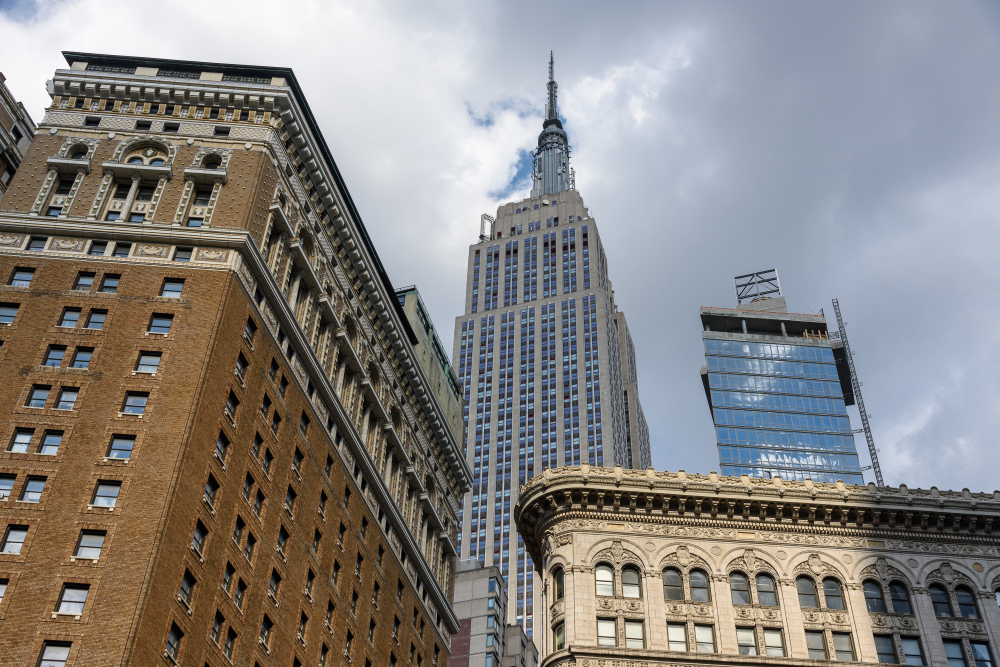Local Law 97 and Energy Efficiency: Strategies for Improving Building Performance

Local Law 97 (LL97), also known as New York Local Law 97, is a landmark regulation passed by the New York City Council as part of the Climate Mobilization Act. This law aims to drastically reduce greenhouse gas emissions from large buildings in New York City, a major step towards achieving the city’s goal of reducing its overall emissions by 80% by 2050. LL97 sets stringent emissions limits for buildings over 25,000 square feet, which will progressively tighten over the coming decades.
Understanding Local Law 97
Local Law 97 NYC mandates that covered buildings must meet specific carbon emission limits starting in 2024, with stricter limits set for 2030 and beyond. The goal is to push building owners and managers to implement energy-efficient upgrades and retrofits to comply with these limits. Non-compliance can result in significant fines, making it crucial for building owners to take proactive measures.
The Cotocon Group: Your Partner in Sustainability
The Cotocon Group specializes in sustainability consulting services, offering expertise to help building owners navigate the complexities of Local Law 97. Our team provides comprehensive assessments and tailored strategies to improve building performance, reduce energy consumption, and ensure compliance with LL97.
Strategies for Improving Building Performance
- Energy Audits and Benchmarking
The first step in complying with Local Law 97 is understanding your building’s current energy performance. An energy audit conducted by The Cotocon Group(TCG) can identify areas where energy is being wasted and recommend improvements. Benchmarking, which involves comparing your building’s energy use against similar buildings, helps to establish a baseline and track progress over time.
- Building Envelope Improvements
Improving the building envelope—walls, windows, roofs, and foundations—can significantly enhance energy efficiency. Measures such as installing high-performance windows, adding insulation, and sealing air leaks reduce the need for heating and cooling, lowering energy consumption and emissions. TCG can evaluate your building’s envelope and suggest cost-effective upgrades.
- HVAC System Upgrades
Heating, ventilation, and air conditioning (HVAC) systems are major energy consumers in buildings. Upgrading to high-efficiency HVAC systems, incorporating smart controls, and ensuring regular maintenance can dramatically reduce energy use. The Cotocon Group provides expertise in selecting and implementing HVAC upgrades tailored to your building’s needs.
- Lighting Retrofits
Switching to energy-efficient lighting, such as LED bulbs, is a straightforward way to cut energy usage. Incorporating lighting controls like occupancy sensors and daylight harvesting systems can further enhance efficiency. Our team at The Cotocon Group can design and implement a lighting retrofit plan that maximizes energy savings.
- Renewable Energy Integration
Incorporating renewable energy sources, such as solar panels or wind turbines, can help buildings meet their energy needs sustainably. The Cotocon Group can assess the feasibility of renewable energy installations for your property and manage the integration process to ensure optimal performance and compliance with Local Law 97 NYC.
-
Energy Management Systems
Advanced energy management systems (EMS) enable building owners to monitor, control, and optimize energy use in real-time. These systems provide detailed insights into energy consumption patterns, identify inefficiencies, and suggest corrective actions. The Cotocon Group can help you select and implement an EMS that fits your building’s unique requirements.
- Commissioning and Retro-Commissioning
Commissioning ensures that all building systems are designed, installed, and operating as intended. Retro-commissioning involves fine-tuning existing systems to improve their performance. Both processes can lead to significant energy savings. The Cotocon Group offers commissioning and retro-commissioning services to enhance your building’s efficiency and performance.
- Water Conservation Measures
Reducing water consumption also contributes to overall energy savings, especially in buildings where hot water usage is significant. Installing low-flow fixtures, optimizing hot water systems, and implementing water recycling systems are effective strategies. TCG can guide you through the process of adopting water conservation measures.
- Green Roofs and Cool Roofs
Green roofs, which are covered with vegetation, and cool roofs, which reflect more sunlight and absorb less heat, can lower energy demand by reducing the heat island effect and improving insulation. These roof types also offer additional benefits such as stormwater management and increased roof longevity. Our experts at The Cotocon Group can help you determine the best roofing solution for your building.
- Tenant Engagement and Education
Engaging tenants in energy conservation efforts is crucial for achieving lasting results. Providing education on energy-saving practices and encouraging participation in building-wide initiatives can lead to significant behavioral changes. The Cotocon Group can develop tenant engagement programs tailored to your building’s community.
Benefits of Compliance with Local Law 97
Financial Savings
While the upfront costs of implementing energy efficiency measures can be significant, the long-term financial benefits are substantial. Reduced energy consumption leads to lower utility bills, and compliance with LL97 helps avoid hefty fines.
Increased Property Value
Energy-efficient buildings are more attractive to buyers and tenants, often commanding higher rents and property values. Demonstrating compliance with Local Law 97 can enhance your building’s marketability and competitiveness.
Environmental Impact
Reducing greenhouse gas emissions is crucial for combating climate change. By complying with Local Law 97, building owners contribute to a healthier environment and help New York City achieve its sustainability goals.
Enhanced Comfort and Productivity
Energy efficiency improvements often lead to better indoor air quality, consistent temperatures, and improved lighting—all of which enhance occupant comfort and productivity.
The Cotocon Group’s Approach
Customized Solutions
The Cotocon Group understands that each building is unique, with its own set of challenges and opportunities. Our approach involves developing customized solutions that address the specific needs of your property while ensuring compliance with Local Law 97 NYC.
Comprehensive Support
From initial assessments and audits to the implementation of energy-saving measures and ongoing monitoring, The Cotocon Group provides comprehensive support throughout the entire process. Our goal is to make compliance with New York Local Law 97 as seamless and cost-effective as possible.
Expert Knowledge
Our team of experts stays abreast of the latest developments in energy efficiency technologies and regulations. This ensures that our clients receive the most up-to-date advice and solutions, keeping them ahead of the curve in compliance and sustainability.
Conclusion
Local Law 97 represents a significant opportunity for building owners in New York City to enhance energy efficiency, reduce emissions, and contribute to a more sustainable future. By partnering with The Cotocon Group, you can navigate the complexities of this regulation and implement effective strategies to improve your building’s performance. Whether it’s through energy audits, HVAC upgrades, renewable energy integration, or tenant engagement, our team is dedicated to helping you achieve compliance and realize the many benefits of energy efficiency. Embrace the challenge of Local Law 97 with confidence, knowing that The Cotocon Group is here to support you every step of the way.
Also Read: Chicago Real Estate








